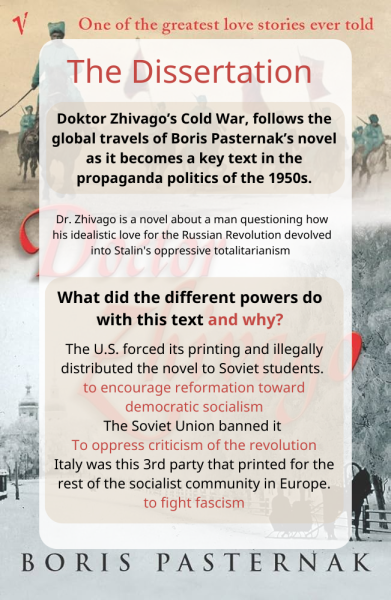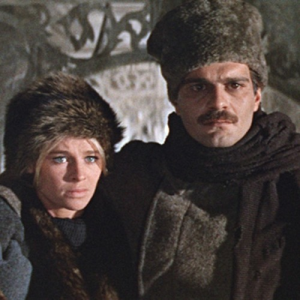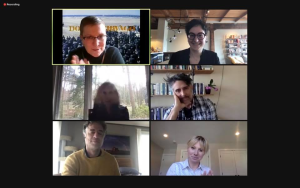Dr. Jessica Gokhberg’s educational journey spanned a straight 24 years, a true marathon of dedication and achievement. It began with a triple major in Comparative Literature, European Cultural Studies, and English, along with a minor in Hispanic Studies. They then earned a master’s degree in Comparative Humanities at Brandeis University before completing their PhD at Duke University.
Dr. Gokhberg’s academic focus took a sharp turn during their master’s program. They began with research in Latina studies, but after Russia annexed Crimea in 2014 and passed “anti-gay propaganda laws,” the topic hit home. Growing up in a household of Soviet refugees and knowing victims of these laws in Russia, Gokhberg noticed a troubling mistranslation of the laws’ impact and intentions from Russia to America. “I felt an immediate need for correct translation work,” they said, a realization that pushed them to shift their focus just a few months into the program.
In their research and translation work, Gokhberg found the deeper issue: “Public discourse was linking [the invasion] back to Cold War history and trying to pose [the] Russian invasion… as a second Cold War, and I didn’t agree with that framing.” By the time they completed their two-year bachelor’s degree in just one year, their passion for the translation project had only grown. That fire carried them into a PhD program, where they continued their research.
They wanted to rethink the annexation of Crimea, not as a “second Cold War” but rather as a separate issue in a changed world. “The US is no longer the seat of democracy, and Russia is no longer the seat of totalitarianism; they are using old language to describe a new situation,” Gokhberg said. This viewpoint was contentious, and when debating between the University of Michigan and Duke University, Gokhberg chose Duke as a more supportive, welcoming environment.

The seven-year PhD path was long but exciting; the first two years were classes, and the last five were writing and research. When Gokhberg was taking their classes and writing their prospectus, they found that “In order to write about this so-called second Cold War, I had to understand the first one and what the ideological frameworks were that were supposedly inherited into the 21st century,” said Gokhberg. Through this discovery, they found Doktor Zhivago as a weapon of the Cold War and the center of their research topic.
The book had been used by many groups as an ideological tale during the Cold War: the U.S., Soviet Union, and Italy. The novel was intellectually contentious and heavily debated the different powers at work during the Cold War, but the intelligence was only recently released: “What the U.S did with Dr. Zhivago was only released in 2014, when a pair of researchers paid to have them released,” said Gokhberg.
“A lot of what I did was parsing through archival material reading CIA documents, reading national security documents, visiting Cold War museums in Eastern Europe, looking at old versions that were distributed of Dr. Zhivago, interviewing my own family members and others who that were part of the distribution of the novel in the 1950s, and comparing translation,” said Gokhberg. “It was a constantly exciting process because I was always learning something new,” they said.

When they finished their preliminary research, compiling began, they broke down each section. “In each chapter, I decided to take one specific object and write about that object,” Gokhberg said. But then the global pandemic struck, and Gokhberg stuck to online archives and was alone in the writing process, without contact with even their advisor.
“Writing is already such an atomizing experience; you’re already so alone sitting at your desk. It was a really sad experience to finish that process alone,” Gokhberg said. When the research was nearing an end, the process of defending the 340 research pages began.
The defense was underwhelming. “It was honestly really disappointing because it happened during COVID,” Gokhberg admitted. “I had this giant idea the whole seven years I was there about this party I was going to throw… It was going to be a big celebration of finally getting through.”

But when it was all over, without the fanfare they had imagined, the path ahead felt unclear. Universities were slashing budgets, tenure-track positions were vanishing, and what used to be a straight shot from PhD to academia no longer existed.
Even so, Gokhberg doesn’t regret the journey: “There was nothing else I wanted to do with my life,” they said. For those considering the PhD, Gokhberg doesn’t sugarcoat it: “There’s no guarantee at the end of it… I would also highly recommend taking a gap year to get some distance from the process of school.” And for those who know there’s no other path, Gokhberg added, “If that’s true for you, then consider the PhD.”